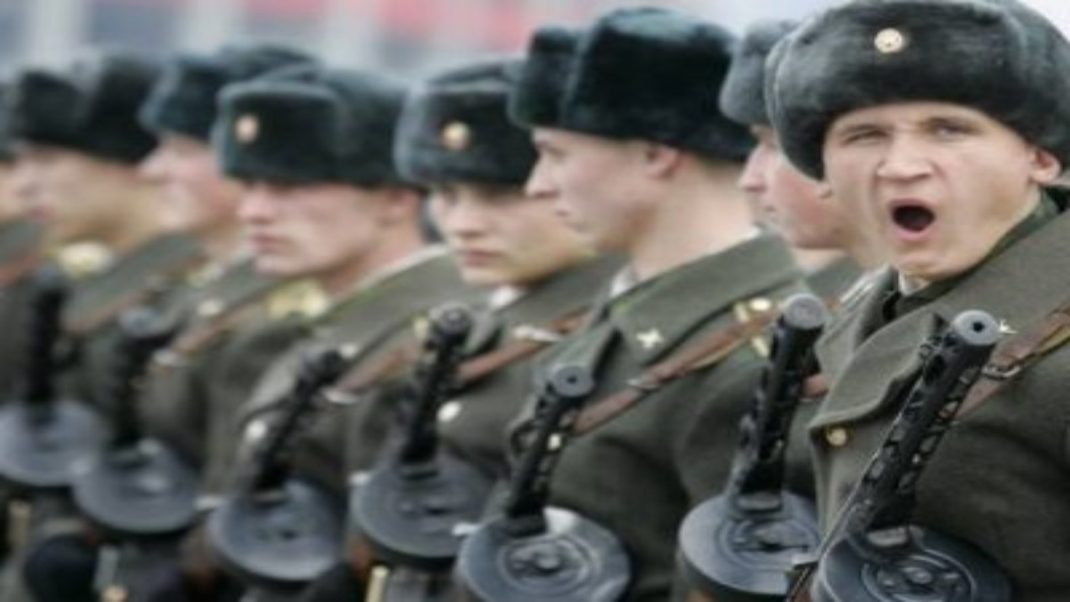Hafed Al-Ghwell
 The head of Libya’s recently appointed Government of National Unity (GNU), Prime Minister Abdul Hamid Dbeibah, took a surprising trip to Moscow last week, where he met senior Russian officials, vowing to build bridges and preserve Russia’s growing stake in Libya’s economy.
The head of Libya’s recently appointed Government of National Unity (GNU), Prime Minister Abdul Hamid Dbeibah, took a surprising trip to Moscow last week, where he met senior Russian officials, vowing to build bridges and preserve Russia’s growing stake in Libya’s economy.
On the surface, the trip made a certain sense, given Libya’s complex dynamics of a fragmented nation with bifurcated governments, trying to navigate a conflict-prone, fragile landscape rife with thousands of foreign fighters and mercenaries, alongside a dizzying array of local heavily armed non-state actors.
The brief lull in open hostilities and sporadic skirmishes afforded by a ceasefire agreement signed in October last year allows the GNU some room for cordiality and less conventional forms of rapprochement with antagonistic elements such as Russia in order to grease the wheels and engineer a departure of foreign forces from Libya’s soil.
However, Russia’s involvement in Libya is multifaceted and goes beyond simply trying to influence the composition of its future leadership and political processes.
Turkey’s interventions were also motivated by easily discernible objectives — lucrative postconflict contracts in energy, infrastructure and real estate, as well as reinforcing its ambitions for eastern Mediterranean undersea resources.
It is no secret that Russia’s meddling in the Libyan conflict was spurred by strategic reasons that go far beyond Libya.
Had Russia acted swiftly on a Nov. 2008 offer of a naval base in Benghazi, before the removal of Muammar Qaddafi, Moscow would have gained a key strategic foothold a stone’s throw from NATO’s southern flank.
The northern rim of the Mediterranean is now inundated by an unprecedented set of complex and diverse threats from emboldened state and non-state actors, unperturbed by an increasingly introverted West too wary, exhausted and uninterested in confronting mounting challenges in regional and global security.
It is against this backdrop that Russia ventured into the Libya conflict, right next to Europe’s extremities, and is now sponsoring radical and violent non-state elements who are waging increasingly complex forms of hybrid warfare that demand multidimensional strategies for defense, security, counter-terrorism and crisis management.
NATO still lacks a comprehensive strategy for its southern flank, one that could meet the moment and address some of the vulnerabilities that contribute to an even more unstable Libya, such as an ineffective maritime strategy that has failed to curb the proliferation of weapons in Libya despite a UN embargo.
On the financial side, Qaddafi’s overthrow in 2011 resulted in Russia losing as much as $4 billion in arms contracts, combined with a stalled $3 billion national railways project and nearly a billion dollars’ worth of losses from disruptions in Libya’s natural gas sector.
Things have changed drastically since 2011 but the recovery of those losses and the solicitation of new opportunities remain paramount to long-term Russian thinking, guiding its Libya strategy via the development of extensive local ties and networks, legitimizing its presence, constraining Libyan national will and sidelining any democratization initiatives favored by the West.
This way, Moscow will not only end up recouping its losses after a decade of chaos and civil war, it will also gain a substantial foothold in Libya’s economy — and by extension its political processes, not to mention its larger interest in Africa which was evident in the recent conflict in northern Chad.
For now, Russian officials have toed the same line as the other external actors deeply involved in Libya, by throwing their support behind the Libyan Political Dialogue Forum (LPDF) and lavishing praise on the GNU that came out of it.
However, the changing political tides have not resulted in any unilateral withdrawals of Russian-backed mercenaries or foreign fighters to accede to ceasefire terms.
Instead, Russia has continued to entrench itself and fortify positions in Libya’s oil crescent around Sirte and Jufra, in addition to preserving its existing alliances with Khalifa Haftar’s camp, dispatching about 300 new Syrian mercenaries last month to quell dissent in the Libyan National Army (LNA).
This kind of duplicity is very much in line with other Russian activities in the eastern Mediterranean, Africa and the wider MENA region, where interests-based transactionalism supersedes values-based diplomacy and engagement, leading to prolonged conflict and heightened tensions instead of concerted efforts to restore peace and stability.
Thus, Libyans must be wary of overtures such as the dispatch of 100,000 Sputnik V coronavirus vaccine doses, from the same Russia that has its Deputy Foreign Minister, Sergey Vershinin, insisting on the need for Haftar and supporters of Saif Al-Qaddafi’s rehabilitation to continue influencing Libya’s political processes.
Russia’s troubling and enduring support for Haftar does not bode well for Libya’s end-of-year elections, especially since the power and influence of those opposed to the UN processes and profiting from the existing conflict landscape will probably rebound should the December elections falter.
Indeed, it is important for the Dbeibah camp in Tripoli to maintain open channels to all stakeholders as Libya inches ever closer to restoring its sovereignty and embracing full democratization. However, the GNU should play its cards right and recognize that Russia is not the only player in Libya and some of its ambitions are already being checked by its rivals and partners alike.
For instance, Russia’s encroachment into Libya would not have been possible without logistical and financial assistance from some Arab countries. All these countries have cooperated in defense of their interests but their long-term objectives are divergent.
On the opposing end of the conflict, Russia must also compete with Turkey, which itself has more than $15 billion in stalled or backlogged contracts, while European nations such as France, Italy and the UK are jealously guarding their interests in Libya’s energy sector.
In addition, China also sees Libya as an important node in its Belt and Road Initiative, making Beijing a silent but influential actor in Libya’s postconflict reconstruction.
In short, Libya’s new interim authorities must reject any Russian attempts at co-opting the GNU and tainting Libya’s budding political processes as part of its broader strategic goals to leverage its standing as an emerging Mediterranean and African player.
Any future engagements or overtures from Moscow must be weighed against the consequences of its troubling support for Haftar, who is rumored to be contemplating a presidential bid or may just tap a “Russia friendly” figure in the December elections.
Should the will of Libyans be subverted at the polls, Libya could be plunged back into the chaos of conflict and uncertainty, which will suit Russia just fine.
***
Hafed Al-Ghwell is a senior fellow with the Foreign Policy Institute at the John Hopkins University School of AdvancedInternational Studies.
__________





